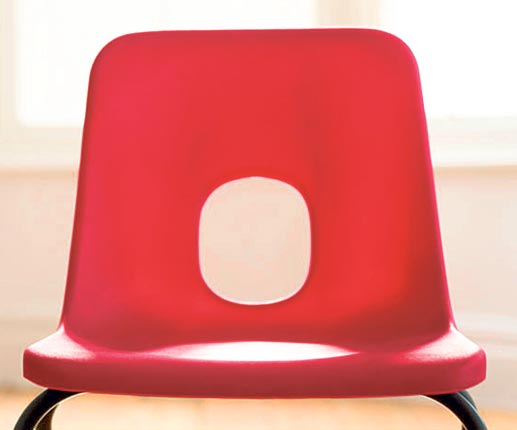A hard chair equals a hard heart
Want to talk tough? Sit on an uncomfortable chair – for the texture of objects around us affects our behaviour

The next time you are sitting in a car dealership negotiating a purchase, make sure you are sitting on a hard chair – you will drive a harder bargain.
Psychologists have found that the texture and feel of objects around us, even those we are sitting on, can affect the way we think and behave.
In an experiment in which volunteers engaged in mock haggling over the price of a car, those sitting in hard, cushionless chairs were tougher negotiators than those in soft, comfortable ones.
"It is behavioural priming through the seat of the pants," said John Bargh of Yale University. "Our minds are deeply and organically linked to our bodies."
In a series of six experiments, researchers from Yale, Harvard and Massachusetts Institute of Technology showed how our sense of touch – the first of our senses to develop – influences our social interactions throughout life.
Interviewers handed the CV of a job applicant were more likely to rate them as serious about their work if the CV was presented on a heavy clipboard than a light one. They also rated their own accuracy in the task as more important.
Volunteers asked to do a jigsaw puzzle and then read a story about an exchange between two people were more likely to judge the relationship between the pair as adversarial if the puzzle pieces were rough, not smooth.
In a similar experiment, volunteers given a hard wooden block to handle before being told about an interaction between a boss and an employee were more likely to judge the employee as rigid and strict than those given a soft woollen blanket to handle.
The results, published in the journal Science, build on a 2008 study by Dr Bargh which showed that volunteers given a warm cup of coffee to hold briefly were more likely to judge other people as caring and generous than if they held a cold drink instead. Christopher Nocera, co-author of the study, said: "Touch remains perhaps the most underappreciated sense in behavioural research. People often assume that exploration of new things occurs primarily through the eyes. While the power of vision is irrefutable, this is not the whole story."
The warm and gentle touch of a mother is equated with comfort and safety, and roughness and hardness with its opposite. These are the first physical concepts that a child develops which are later manifested in abstract ideas like a warm smile and a hard heart. They help create the scaffold on which the adult later makes social judgements, the researchers say.
The authors write: "First impressions are liable to be influenced by the tactile environment, and control over the environment may be especially important for negotiators, pollsters, job seekers and others interested in interpersonal communication. The use of "tactile tactics" may represent a new frontier in social influence and communication."
Mr Nocera said: "Our work suggests greetings involving touch, such as handshakes and cheek kisses, may have critical influences on our social interactions in an unconscious fashion."
Dr Bargh said touch was an important sense not only for exploring the world but for shaping our understanding of it, reflected in expressions such as "weighing in with an opinion", "having a rough day" or "taking a hard line".
"These physical experiences not only shape the foundation of our thoughts and perceptions but influence our behaviour towards others, sometimes just because we are sitting in a hard instead of a soft chair."
Join our commenting forum
Join thought-provoking conversations, follow other Independent readers and see their replies
Comments